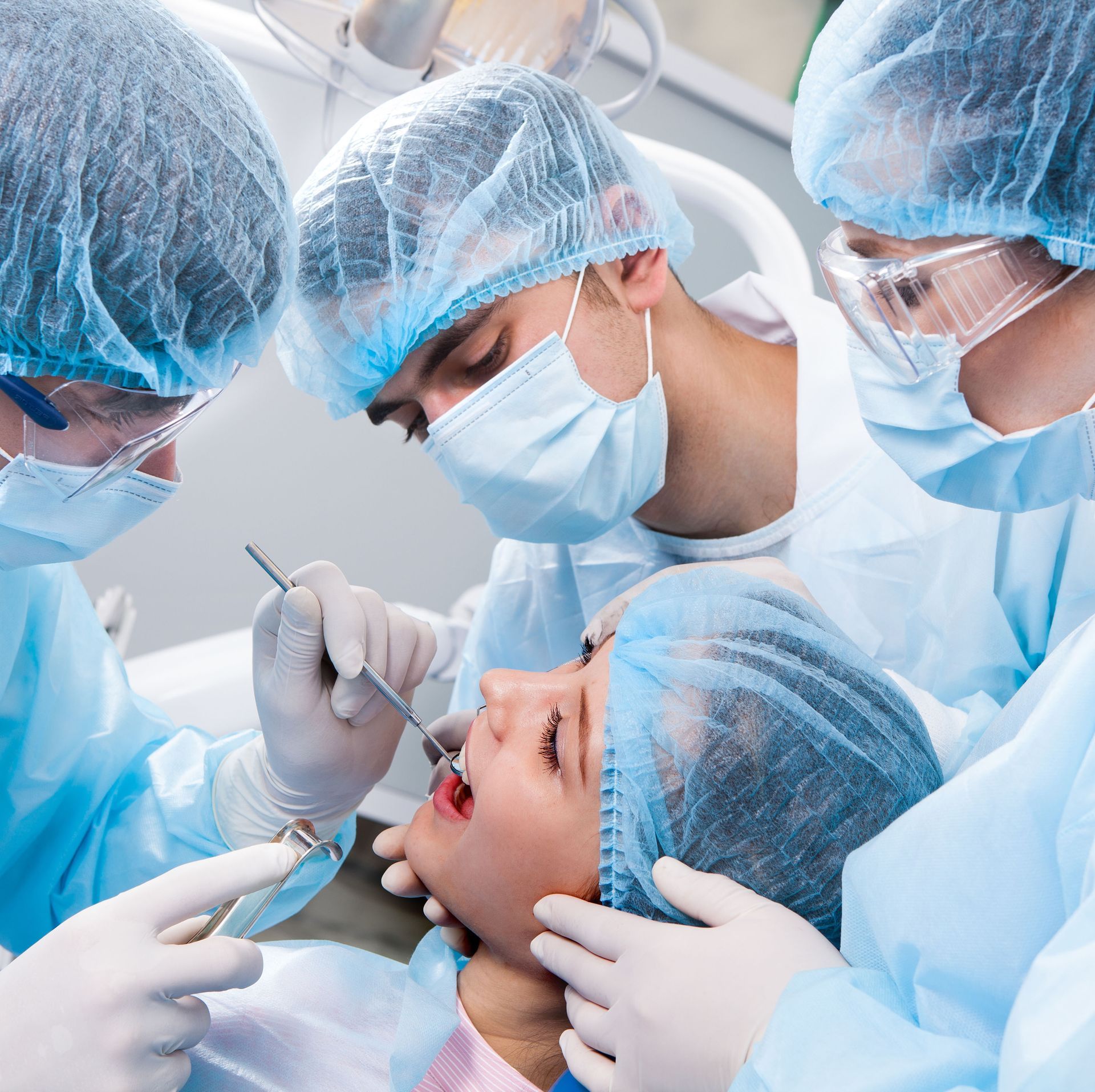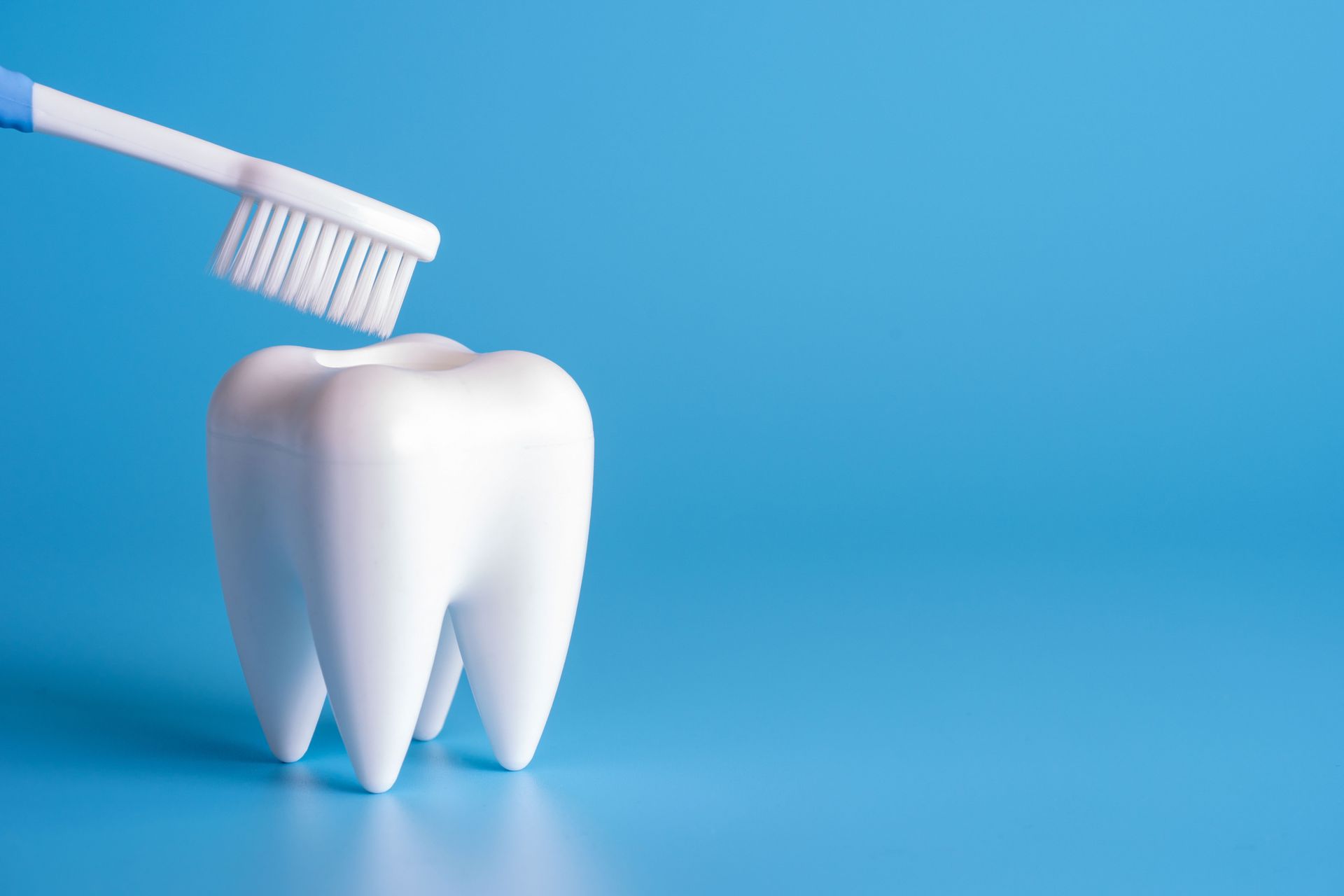How Should I Prepare for Oral Surgery?
Highlights:
- Preparation plays a key role in recovery and comfort during oral surgery.
- Follow your dentist or surgeon’s instructions carefully before the procedure.
- Post-surgery planning includes rest, dietary restrictions, and pain management.
- Panneton Dental Group offers expert oral surgery care in Omaha, NE.
Preparing for oral surgery can ease anxiety and help ensure a smoother procedure and recovery. Whether you're having a wisdom tooth removed, undergoing dental implant placement, or correcting jaw alignment, the right steps beforehand can make a significant difference. Patients in Omaha, NE can rely on the expertise of Panneton Dental Group to guide them through every phase of oral surgery—from initial consultation to full recovery.
Follow Pre-Surgical Instructions Carefully
Your oral surgeon will provide a set of specific instructions leading up to your surgery. These might include fasting after midnight, avoiding certain medications, or arranging for a ride home. According to WebMD, to prepare properly, you should “not eat or drink anything after midnight for morning appointments, take only approved medications with small sips of water, and wear clothing with easy IV access”. Be sure to ask questions if anything is unclear and let your doctor know about any health issues or medications you're taking.
Arrange Transportation and Time Off
Because sedation or anesthesia is commonly used during oral surgery, you’ll need a responsible adult to drive you home afterward. Most patients are unable to safely drive for several hours post-procedure. It’s also recommended to take at least one or two days off work or school to rest. Taking time off reduces physical and mental stress, giving your body the chance to heal properly without unnecessary strain.
Hydration and Nutritional Support Before Surgery
In the days leading up to your surgery, focus on hydration and nutrient intake. Drinking enough water and eating a balanced diet can help strengthen your immune system and promote better post-op healing. Avoid alcohol and limit caffeine, as both can contribute to dehydration. A well-nourished body is better equipped to recover quickly from the stress of surgery.
Frequently Asked Questions
Can I eat before my oral surgery?
Generally, you should not eat or drink anything after midnight before surgery, especially if you’ll be under sedation. Always follow the guidelines given by your oral surgeon.
Do I need to stop taking my medications?
Some medications may need to be paused before oral surgery. Always inform your provider of all prescriptions and supplements so they can offer safe instructions.
How long will I need to rest after surgery?
Most patients need at least 24–48 hours of rest. Healing times vary depending on the type of surgery and your overall health.
Stock Up on Post-Surgery Essentials
Before your appointment, prepare a post-operative recovery area at home with items like soft foods, prescribed medications, cold compresses, and extra pillows. According to Mayo Clinic, a comfortable recovery environment and a well-stocked kitchen can minimize discomfort and lower the chances of complications. Avoid hard, crunchy, or spicy foods, and make sure to follow your provider’s specific dietary instructions after surgery.
Wear the Right Clothing on the Day of Surgery
Wear comfortable, loose-fitting clothes and avoid makeup, nail polish, or jewelry. Short sleeves are helpful if IV sedation will be administered. Tie back long hair and remove contact lenses if applicable. Being physically comfortable makes the experience more manageable and helps the surgical team access you safely during the procedure. Your oral surgeon may provide a checklist to review before the appointment to make sure you’re ready.
Discuss Anesthesia and Pain Management Options
Before your procedure, your surgeon will review anesthesia options—these may include local anesthesia, IV sedation, or general anesthesia—depending on the complexity of your oral surgery. According to Colgate, local anesthesia numbs the area so you're awake but pain-free, IV sedation allows you to sleep lightly during the procedure, and general anesthesia renders you fully unconscious while your vitals are monitored. It's essential to discuss your pain tolerance and any previous reactions to anesthesia so your provider can recommend the most comfortable and safest option.
Prepare Mentally and Emotionally
Feeling nervous about oral surgery is completely normal. To ease your mind, educate yourself on the procedure and recovery process, and speak openly with your dental team about your concerns. Breathing exercises, guided meditation, or even mild anti-anxiety medication prescribed by your doctor can help. Panneton Dental Group in Omaha, NE prides itself on patient-focused care, offering comfort and reassurance every step of the way.
Frequently Asked Questions
What should I avoid doing the night before surgery?
Avoid alcohol, smoking, and eating late. Get a full night’s rest and follow any fasting instructions your provider gives you.
Will I feel pain during the procedure?
You may feel pressure, but pain is unlikely thanks to anesthesia. Your surgeon will keep you as comfortable as possible throughout the surgery.
Can I return to normal activities the next day?
Most patients should avoid strenuous activity for at least 24–48 hours. Resting speeds up healing and reduces the risk of complications.
Understand Post-Surgical Care Instructions
After the procedure, you’ll receive detailed instructions for managing swelling, bleeding, and pain. This may include cold compresses, saline rinses, and medications. Proper aftercare plays a vital role in healing and reducing infection risk. If you’re unsure about anything, don’t hesitate to call your dentist or surgeon for clarification. Ignoring instructions can lead to dry socket, delayed healing, or additional complications.
Plan for a Soft Food Diet
Stick to liquids and soft foods like soup, yogurt, applesauce, and mashed potatoes for the first few days after oral surgery. Avoid straws, spicy foods, or anything too hot, as these can irritate the surgical site. Gradually reintroduce solid foods based on your dentist’s recommendations. A nutrient-rich, soft food diet supports healing and minimizes discomfort while your mouth is still sensitive.
Keep Follow-Up Appointments
After surgery, you’ll likely need a follow-up visit to monitor your healing and remove sutures if necessary. These appointments are essential to prevent complications and address any discomfort. Your surgeon may also check for signs of infection or abnormal healing. Don’t skip these visits—they’re a crucial part of the recovery process and help ensure long-term oral health.
Ask About Emergency Contacts and After-Hours Support
It’s also wise to ask your oral surgeon how to contact them after hours in case of complications. Knowing who to call if you experience unexpected pain, swelling, or bleeding will give you peace of mind. Many practices, including Panneton Dental Group in Omaha, NE, provide emergency contact protocols to support their patients even outside of regular business hours.
Frequently Asked Questions
What are signs of infection after oral surgery?
Look out for persistent swelling, fever, pus, or severe pain. If you notice these, contact your oral surgeon immediately.
When can I brush my teeth after surgery?
You can typically brush the day after surgery, avoiding the surgical area. Use a soft-bristled brush and gentle strokes.
Is bleeding normal after oral surgery?
Some bleeding is normal for the first 24 hours. Bite down on gauze and follow your provider’s instructions to control it.
Final Thoughts
Preparing for oral surgery doesn’t have to be overwhelming. With the right steps, you can reduce anxiety, minimize discomfort, and improve your overall recovery. From understanding pre-op instructions to managing your post-op care, every detail counts. Whether you're a first-time patient or returning for follow-up treatment, working with a trusted provider like Panneton Dental Group in Omaha, NE, can make all the difference. Always communicate openly with your dental team and prioritize rest and healing after the procedure.





Share On: